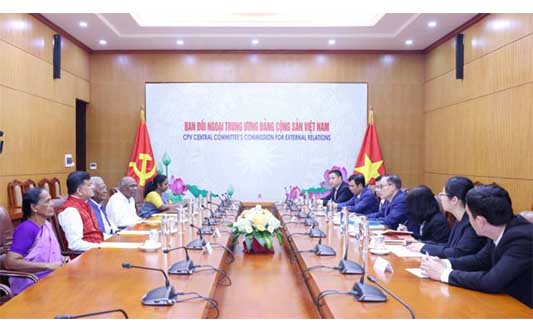BEIJING, CHINA – On August 25th, at the Artificial Intelligence Empowering Future Industries and Organizational Development Forum during the World Robot Conference 2024 (WRC 2024), China’s first artificial intelligence standardization research institute—Beijing Artificial Intelligence Standardization Research Institute—was officially inaugurated in the Beijing Economic-Technological Development Area (also known as Beijing E-Town). The unveiling ceremony was attended by Gao Niandong, Deputy Director of the Beijing Standardization Committee and Secretary of the Party Leadership Group as well as Director of the Beijing Municipal Administration for Market Regulation; Yang Jianjun, Party Secretary and Deputy Director of the China Electronics Standardization Institute; Su Jun, Director of the Tsinghua University Think Tank Center, Director of the Institute of Intelligent Society Governance, and Director of the Tsinghua University Science and Education Policy Research Center; and Zhang Qiang, Party Working Committee Secretary of Beijing E-Town.
Artificial intelligence, as a foundational and strategic technology leading the new wave of technological revolution and industrial transformation, is a crucial engine for developing new quality productive forces. Promoting the standardization of the AI industry is of great significance in advancing technological progress, empowering enterprise development, leading industrial upgrades, and enhancing global competitiveness. With a forward-looking approach, Beijing E-Town has taken the lead in actively promoting the establishment of the Beijing Artificial Intelligence Standardization Research Institute. This institute aims to leverage the city-level engineering experimental platform for AI, supporting enterprises in their intelligent transformation, creating a standardized industry ecosystem, empowering global industry leadership, and contributing “Beijing Power” and “China Solutions” to the world AI industry.
The Beijing Artificial Intelligence Standardization Research Institute will focus on conducting full-chain standardization research in key areas such as cutting-edge AI technologies, industry application scenarios, and risk prevention and governance. The institute will concentrate on foundational support and key technologies, conducting standard research in areas such as computing power, algorithms, and data. It will also address potential risks to social governance brought about by AI development, including ethics and access issues, ensuring AI is safe, reliable, and controllable. Additionally, the institute will focus on building benchmark application scenarios, continuously advancing the standardization of AI products and industry applications, particularly in the robotics sector. Leveraging the Beijing Embodied Intelligence Robot Innovation Center, it will establish an open, collaborative, and innovative technology system, iteratively launch iconic innovative products, strengthen top-level design, address common issues among innovation entities, and drive the standardization of the embodied intelligence industry. The institute will further expand its standard output in vertical industries such as robotics and autonomous driving by using these key scenarios as samples.
In terms of serving industrial development and supporting enterprise growth, the Beijing Artificial Intelligence Standardization Research Institute actively promotes the mutual promotion of standardization levels and industrial innovation, providing multiple services to empower enterprise development. For instance, the institute offers an AI interoperability standard and evaluation platform that provides one-stop services such as data resources, algorithm models, testing, key standards, and industry solutions for industry chain enterprises. It also guides enterprises in participating in AI standard development at international, national, industry, and group levels, assisting in the application for national and municipal AI benchmark projects. The institute is developing a set of rules for selecting benchmark demonstration projects, guiding enterprises in exploring and practicing AI. “This will help enterprises better understand the market, more efficiently aggregate research and production elements, strengthen enterprise technological innovation, and synchronize the development of standards, technology research, and products, bringing new vitality and a new engine to enterprise development,” said Gao Feng, Chairman of Beijing Shenzhou Guangda Technology Co., Ltd., an AI enterprise in Beijing E-Town.
Currently, Beijing E-Town is striving to build a citywide AI hub, creating an innovation system that integrates algorithm breakthroughs, model development, scenario creation, and industrial transformation, deeply integrating AI technology with the construction of E-Town and industrial upgrading. Focusing on “large models + big data + high-performance computing power,” Beijing E-Town has established a high-performance computing cluster, building Beijing’s largest and the nation’s leading AI public computing platform with 5000P high-performance intelligent computing power already in use, and a planned computing power scale exceeding 10,000P. The area is also constructing Beijing AI Data Training Base, leveraging the Beijing Data Infrastructure Pioneer Zone to establish data aggregation platforms in areas such as healthcare, smart transportation, finance, and government services, creating a trusted data space with over 50 enterprises already settled in the training base. The region adheres to scenario applications driving AI technological innovation, releasing a quarterly AI application scenario list, encouraging joint technological breakthroughs and large model applications across various fields through a “list-based leadership” mechanism, and vigorously promoting “AI+” initiatives. This effort includes building benchmark demonstration application scenarios in ten key areas such as smart governance, autonomous driving, embodied intelligence, pharmaceutical health, and industrial manufacturing, with a total investment exceeding RMB 10 billion. Furthermore, focusing on the AI industry development ecosystem, the region is establishing the Beijing AI Application Scenario Research Institute, an open-source platform, and a full-chain investment platform while releasing supportive policies for the AI primary industry.
“Going forward, Beijing E-Town will seize the opportunities presented by the national AI innovation application pilot zone and the Beijing Data Infrastructure Pioneer Zone to support the Beijing Artificial Intelligence Standardization Research Institute in carrying out standard-setting, service, and event organization work, leading the development of the AI industry towards chain-based, cluster-based, and high-end development with high-quality standards,” said a relevant official from Beijing E-Town.












